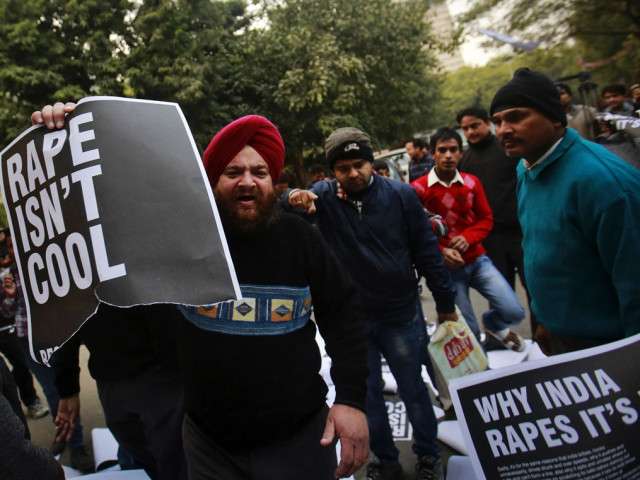Gang rape death
The question for us, as for India, is how to make our cities and indeed our villages and towns safe for women.

A demonstrator holds a torn poster during a protest in New Delhi December 29, 2012. PHOTO: REUTERS
The question of how the case is to be handled raises more issues. Anticipating further protests, the police have been deployed across New Delhi. There is also talk from members of government about making the names of the convicted rapists and sex offenders public, in the hope that they will be denied employment and socially ostracised. Indian rights activists, meanwhile, point out that more often it is the victims who suffer stigma rather than the perpetrators — with this factor leading to a situation where many rapes are never reported at all.
This, unfortunately, is a situation familiar to us in Pakistan as well. Gang rape is a crime we know much about. The question for us, as for India, is how to make our cities and indeed our villages and towns safe for women. The answers lie in inevitably punishing those behind such crimes. However, this does not happen often enough. The answer also lies in empowering women, raising their status and creating more public disapproval for such atrocities. The street clashes and protests in Delhi depict anger but they are still restricted to far too small a group. In India, and everywhere else, the protests need to be bigger, wider and sustained through peaceful means so that longer-term change can finally be achieved before other women fall victim to similar horrors. This must not be permitted.
Published in The Express Tribune, December 30th, 2012.














COMMENTS
Comments are moderated and generally will be posted if they are on-topic and not abusive.
For more information, please see our Comments FAQ